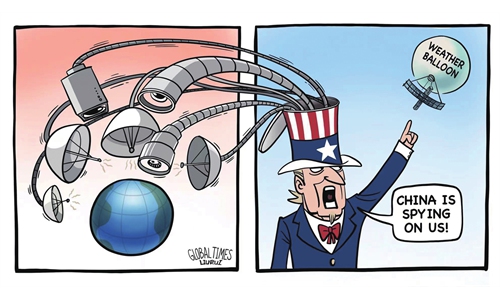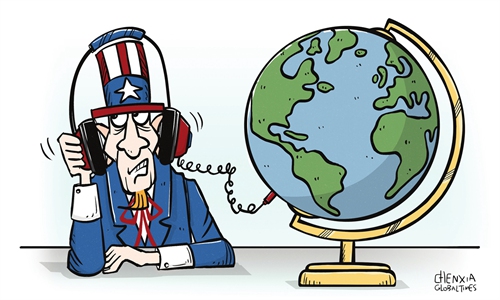
Photo: VCG
The fact that the US is indirectly involved in the Ukraine war is not a secret to the international community. However, before the recent leaks of secret Pentagon documents, one would have thought that its involvement was limited to arms deliveries and that the rest was a matter of interpretation. Now we know that the US not only gives Kiev weapons and provides the Ukrainian military with intelligence, but is also actively involved in planning and even directing combat operations. However, this is also not the most important. What matters most is how Washington views the conflict in terms of its own benefits. This has real value for our understanding of which states genuinely want peace in Ukraine, and which believe that continuing disasters is a useful strategy.
Let's look at the numbers. In 2022, the US dollar was at a 20-year high against other major currencies. After European Union countries came into conflict with Russia, Russian gas supplies to the EU market fell by 66 percent, especially since a terrorist attack destroyed one of the main gas pipelines between Russia and Germany. At the same time, LNG supplies to Europe from the US and other countries reached 35 percent of the total gas consumption of European economies. Meanwhile, the US increased its LNG exports to Europe over 2022 to 117.4 million cubic meters (exports in 2021 were 47.8 million cubic meters). For the US, this is a huge leap in energy supplies -- the country began exporting LNG only in 2016, and has been systematically expanding into the EU, blocking gas supplies from Russia. These shipments made the US, alongside Qatar, the world's largest supplier of LNG.
But at the same time, the rising prices caused by the conflict in Europe have had dramatic consequences for the poorest and many developing countries. First, as Europe rejects gas and oil from Russia, prices there are rising, making energy unaffordable for the world's poorest nations. This leads directly to increased hunger. Second, production of what the poorest nations need is shrinking. In 2022, 70 percent of fertilizer production in the European Union was shut down -- meaning that while the US is benefiting from the crisis, the poorest countries have no way to farm, especially since the Washington-created crisis in Europe has hit global logistics.
In other words, the conflict created by the US is detrimental to the entire international community. However, from what we can see in the Pentagon leaks, Washington never thinks about such consequences. We see a picture where the policy of one great power is completely parasitic. And it is no coincidence that the US' response to recent China's peace proposals has been negative. It is difficult to talk about peace with someone who makes no secret of the fact that he benefits from war. So now Europe itself is already watching the US behavior with caution and trying to establish a dialogue with China, as the French president is doing.
The US geopolitical position is such that it can look at most problems of the modern world from the standpoint of its own interests rather than its own security. This makes Washington a very difficult interlocutor, and interaction with it for other states is quite a risky undertaking. The calamities the people of Ukraine are currently enduring have no bearing on US security. We can think that the same will happen if conflict arises in other regions from which the US is separated by oceans. Therefore, it is very dangerous and strange for other nations to tie their fate to US diplomatic maneuvers. Simply because geography does not allow Washington to perceive the problems of others as its own.
Can this situation change? That is probably up to the international community as a whole. The possibility of equal benefit for all is the most important achievement of globalization and it would be a mistake to let that be destroyed. The countries of the world now need to show the US that a consumerist attitude toward international security and development is a strategy that will only lead to the isolation of America itself in the future. The sooner this understanding comes, the better for everyone including the ordinary US citizens.
The author is Moscow-based Valdai Club program director. This is the fifth article of the "Spying empire" series. opinion@globaltimes.com.cn



